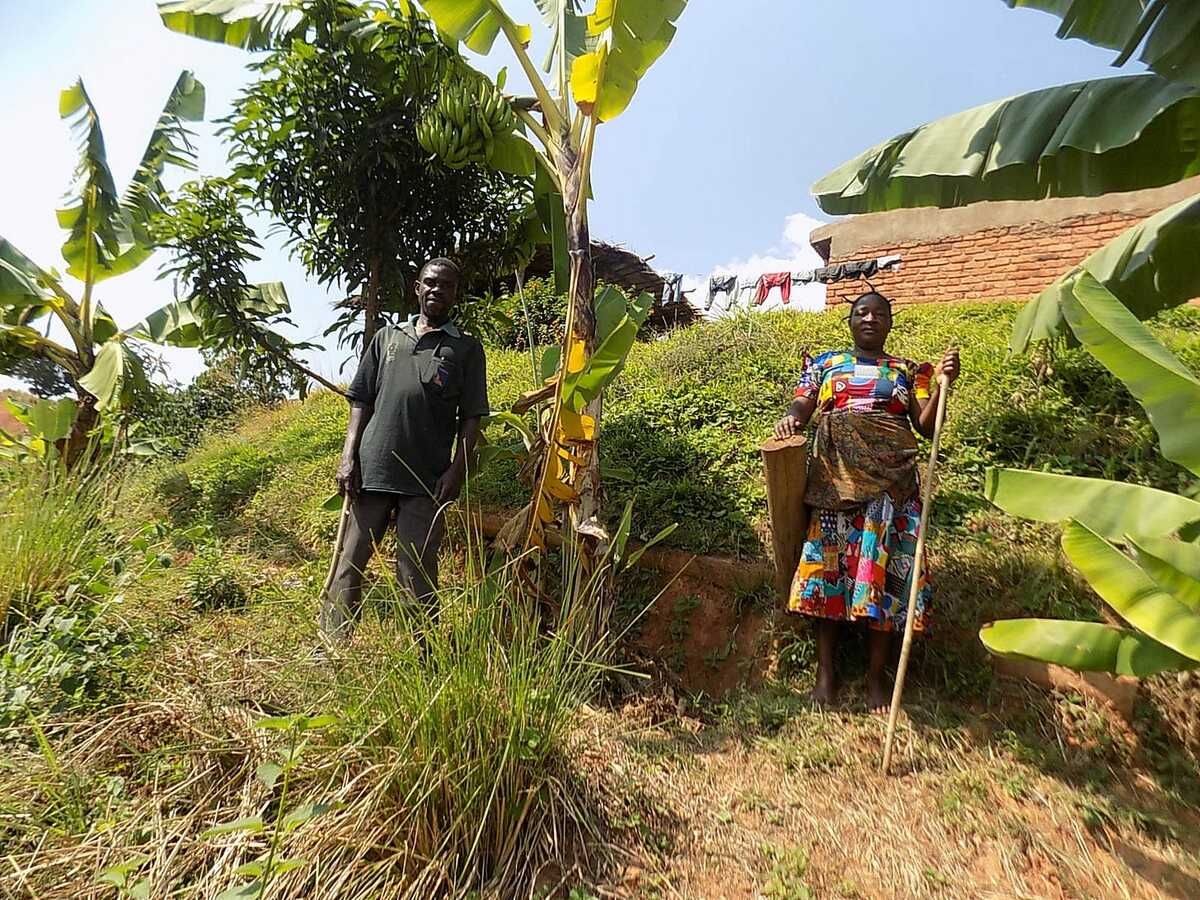
A new, bold, and real project is underway to teach a hungry nation how to produce its own food while also empowering local communities!
MAYBE YOU HAVEN'T HEARD ABOUT THE "Better Extension Training Transforming Economic Returns (BETTER) - Kulima" PROJECT.
You ought to have!
It is a large-scale project with the goal of improving the resilience, food, nutrition, and income security of 400,000 smallholder farmers in 10 KULIMA districts throughout Malawi.
The project, a collaboration between five non-governmental organisations (NGOs)-Self Help Africa (Lead), Action Aid, Evangelical Association of Malawi, Adventist Relief & Development Agency, and Plan Malawi-is funded by the EU to the tune of 15 million Euros.
It is almost producing incredible results from top to bottom.
I know.
"Give a man a fish, and you've fed him for a day," the old adage goes, "but teach a man to catch fish, and you've fed him for a lifetime."
How often is this adage followed in the implementation of many projects?
Rarely!
However, in the districts of Chiradzulu and Nkhata Bay, I discovered an outstanding example of positive NGO and local community collaboration: the "Extension Training Transforming Economic Returns (BETTER) - Kulima."
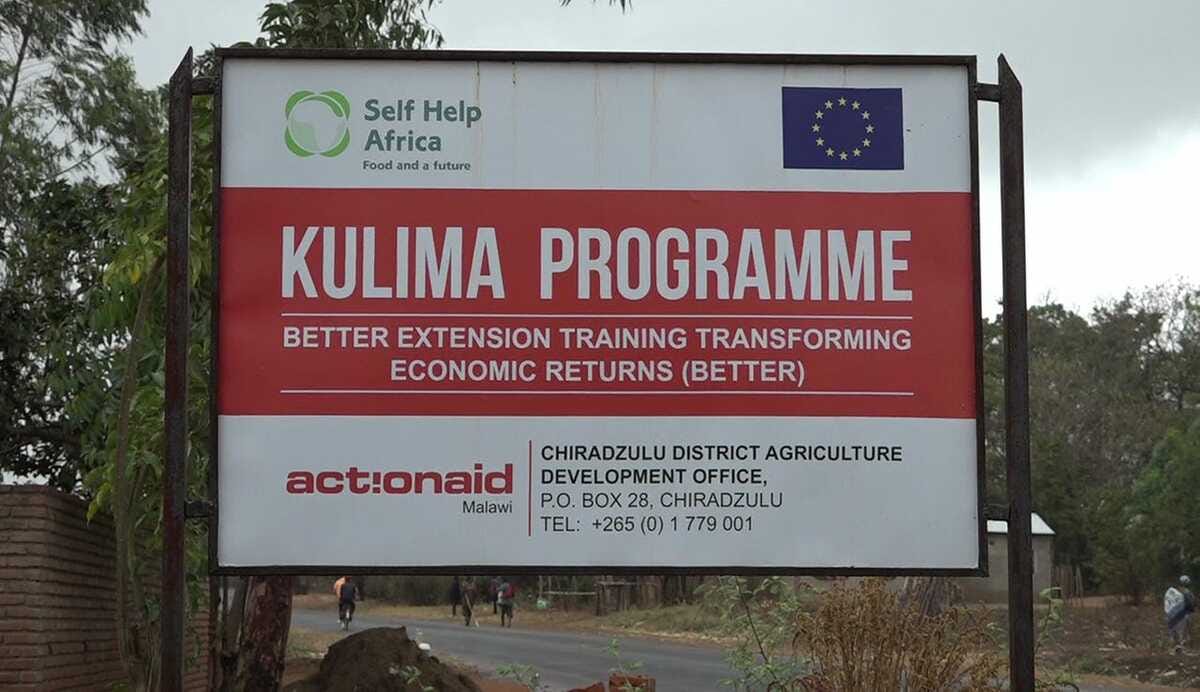
It all comes down to laying a solid foundation.
The project, which began serving farmers in the two districts in 2018, embodies the vision and drive of the local communities.
On a bright Thursday afternoon in rural Chiradzulu district...we are witnessing a one-of-a-kind success story.
Kambewa village in Traditional Authority Nchema, located virtually in the rural area part of Chiradzulu, is emerging as a beacon of prosperity in the midst of economic national turmoil.
We meet members of Kachere Farmers Field School, one of the 13,400 FFS with which ActionAid and its partners are collaborating in 10 districts across Malawi as part of the Kulima Better Project.

Mary Mgodi is a Farmer Field School participant as well as a community-based facilitator (FFS).
"Since its inception in 2018, the Kulima Better Project has steadily assisted us in increasing our personal income and general public welfare about modern farming techniques," she says.
Mgodi claims that her 14-member all-women Kachere Farmers Field School has made tremendous progress in two years, both individually and as a group.
"We have learned a number of techniques for improved cultivation of groundnuts, maize, and other crops through the FFS and support from the local agriculture extension worker, Mr. Mphatso Katama," she said. “We were also shown improved varieties and taught how to cultivate them."
Not bad considering these farmers were previously plagued by never-ending problems.

Mgodi, on the other hand, says that while the group has blazed a remarkable path of economic development, there are some hiccups that must be ironed out.
"Right now, we're running a village banking group, but we don't have the expertise to ensure we're doing the right thing." We are appealing to anyone or any group to come to our aid," she said.
Not only that, but Mgodi cites a lack of interest among men in joining groups as another issue in the area in terms of the project. She claims that this occasionally causes conflict between spouses.
"Once again, we have issues with some men who forbid their wives from joining the FFS, which we believe is detrimental to both individual and community development," she said.
Nonetheless, Mgodi says the group is optimistic about its future growth because of excellent advice from ActionAid's leadership, government support, and people's willingness to work toward economic independence.
True to Mgodi's words, we met the Bonongwes: Sam and Loveness... true rags to riches story.
Sam and Loveness are among the families who claim to have benefited from the Kulima Better Project's ActionAid-run farmers field schools.

The couple claims that the Kulima BETTER Project, now in its second year, has greatly aided them by providing them with access to information to guide their production decisions, which is often a major constraint for many farmers in Malawi.
The two, along with their family, lived in a flimsy-looking mud house with three rooms and almost no furniture.
"We lived in this mud, dilapidated grass-thatched house for many years because we couldn't afford to build a better one," Loveness explained.
"Most of the time, especially during the rainy season, we were always concerned about whether everything would be in order when we returned." But that is no longer the case, as we have built a better and stronger house thanks to the FFS training."
Soft-spoken Sam admits that he was initially hesitant to allow people to join the FFS, owing to the fact that it was a new concept in the area.
"When my wife told me about the FFS, I didn't hesitate but encouraged her to join, and from the looks of things, it wasn't a bad decision, because here we are today: we've managed to build a better house after benefiting from the various farming techniques we learn in the group," he said, backing up a point made by his wife, Loveness.
So here's the catch: Loveness borrows money from the village savings bank through the local FFS, which she then gives to her husband, who runs various businesses.
"I always make certain that we repay the loan on time so that we can borrow more in the future," Mr. Bonongwe said.
The Bonongwes say their participation in the Kulima BETTER Project has also enabled them to pay school fees for their three children, which they say would have been difficult in the past.
Some Kachere Farmers Field School members have also ventured into animal husbandry, not only to supplement their income but also to meet their nutritional needs.
Consider Margret Maganga's family: she says her family now raises goats, which she says they never thought possible without the help of the Kulima BETTER Project.

"Previously, our family was facing insurmountable financial problems, but that all changed after I joined the local farmers field school, where, among other things, I was allowed to become a member of the group's village savings bank," she explained.

She claimed that the loans she obtained from the village bank helped her husband expand his business of selling goats at the local market.
Margret also put what she learned at the farmers' field school into practise.
She said: "As a result, this year we were able to increase our harvest yield to sixty 50 kg bags of maize, whereas previously we were able to harvest around fifteen 50 kg bags of maize. This has enabled us to pay our child's secondary school fees."
The Magangas have also ventured into animal husbandry, raising goats and rabbits with the proceeds of their labour.
Let's take another look at a remarkable and proven success story — this time in Madzuwa Village, TA Mpama, where we meet members of Chigwirizano Farmers Field School, another vibrant group.
It's a big day here, too, with the piglets being distributed, which means one thing to the recipients: assurance of a bright future.
Six farmers line up one by one to receive their share. It's a story they'll tell their children and grandchildren for the rest of their lives.
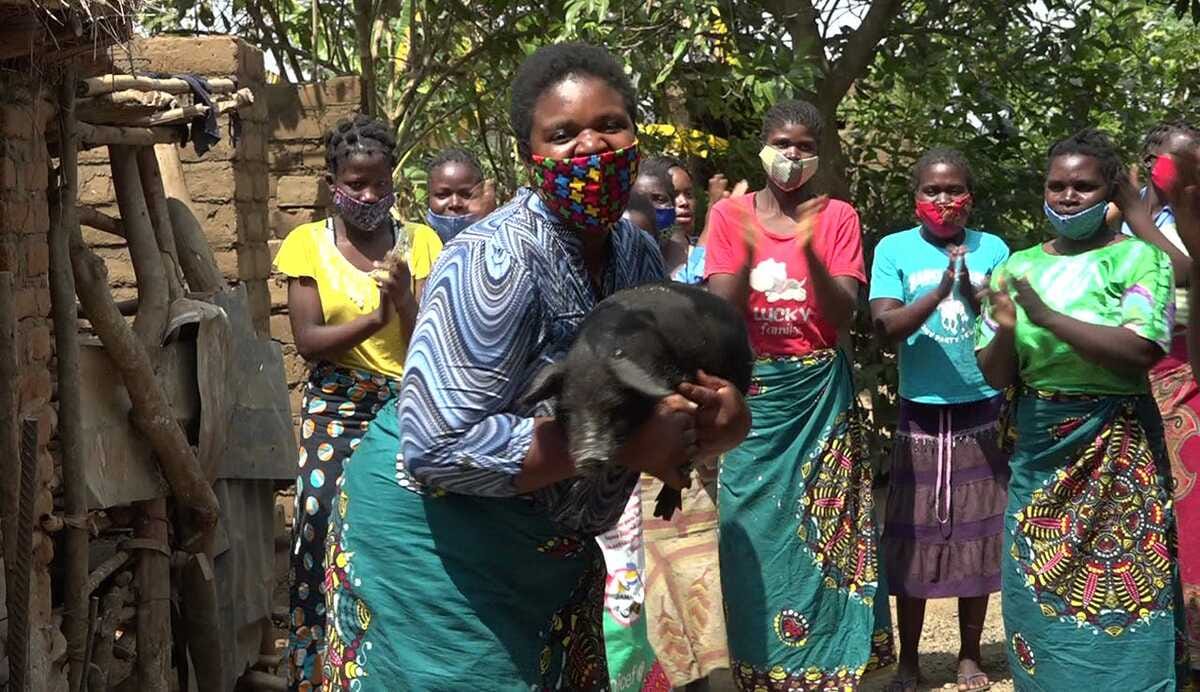
Catherine Jake, one of the six female members who have gotten their share of the piglets, is overjoyed, and she says what they always needed were teachers — practical, unsentimental teachers to guide them.
"We needed to develop our own economy tailored to our psychological needs," Catherine said. “Not handouts, but recognition of our worth and dignity as human beings."
It's a dream come true for her and the other 24 FFS members.
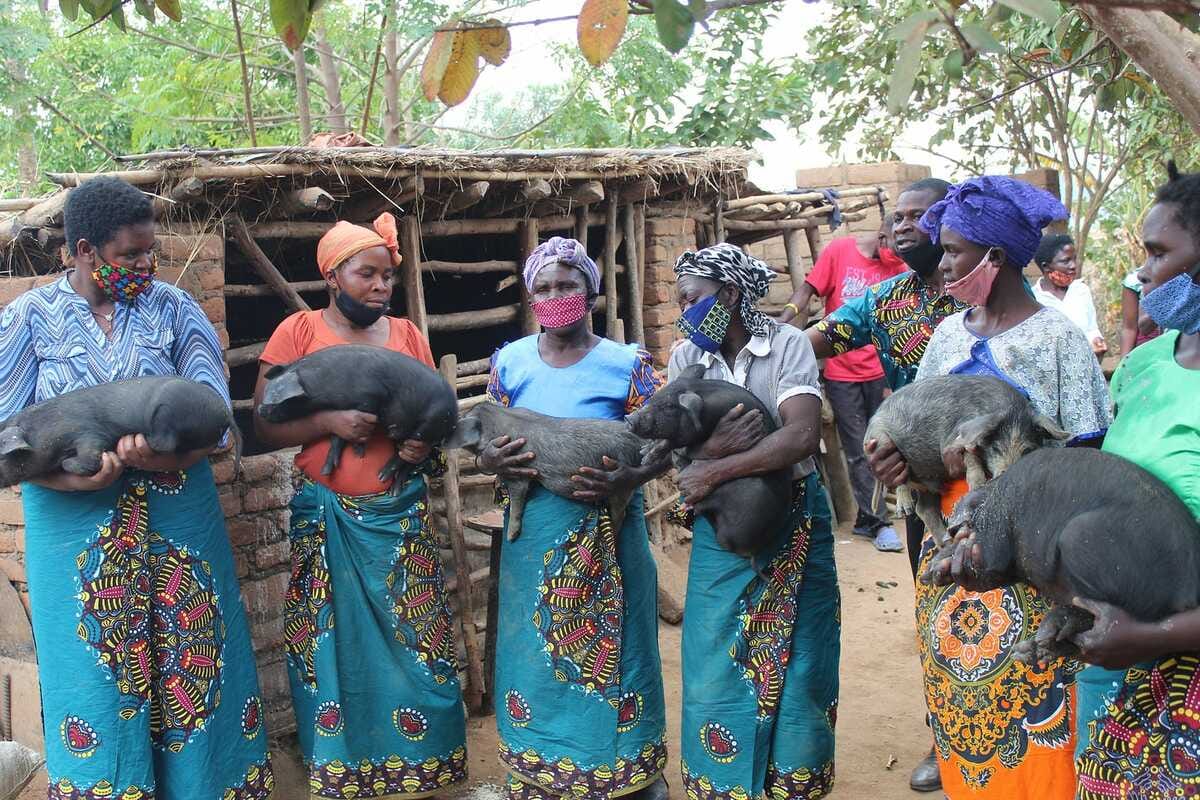
"I know that by pig farming, I will be able to make ends meet and accomplish a number of goals." I strongly encourage those who are hesitant to form similar groups to those established by ActionAid Malawi in the Kulima Better Project in the surrounding area," Benito Njolinjo, the Community-based facilitator said.
Njolinjo said that as a facilitator, he is overjoyed that members of Chigwirizano Farmers Field School have swallowed the Kulima Better message, hook, line, and sinker.
"When ActionAid Malawi introduced us to the Kulima Better Project in 2018, we were immediately interested and signed up." We established the Chigwirizano Farmers Field School. And, with the help of other farmers, I've learned modern farming techniques for better crop cultivation, including animal husbandry," Njolinjo said.
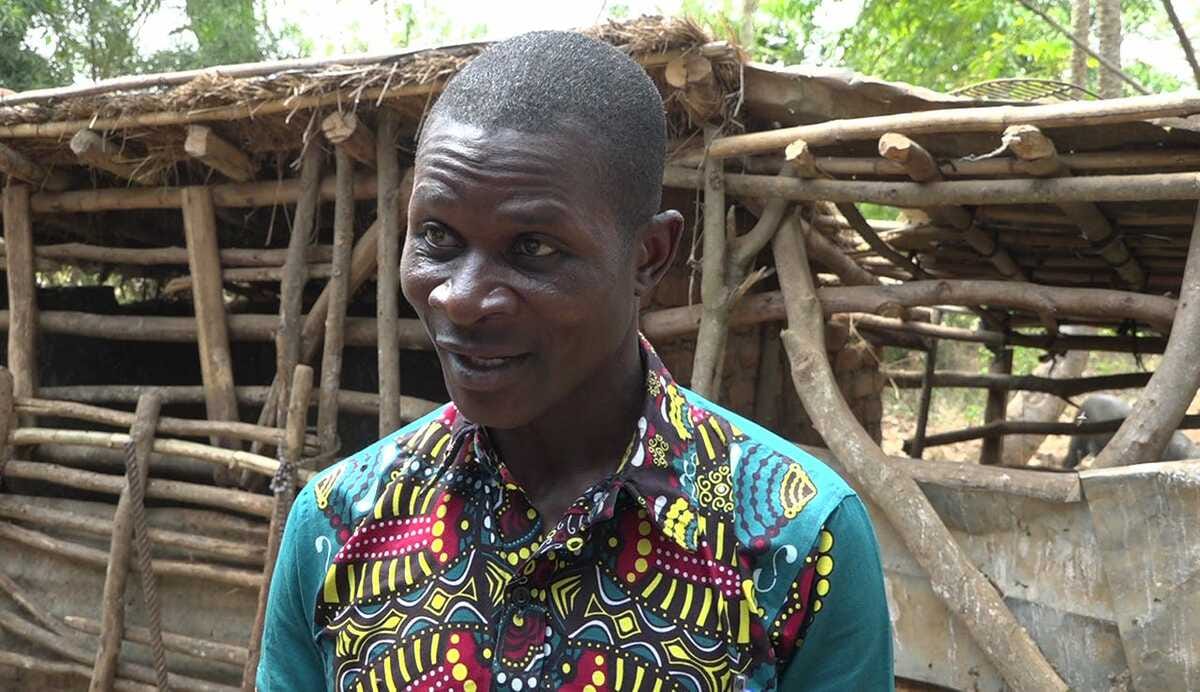
"In my case, I was able to harvest twenty-five 50 kg bags of maize from the same piece of land where I used to harvest about ten bags of maize, thanks to the modern farming techniques we are learning at the FFS carried out on farmer's fields," he explained.
According to Rosemary Francisco, before we could live in the village, we needed to witness yet another miracle.
"Thanks to ActionAid and the Kulima Better Project, I am now the proud owner of a pig, which I never imagined would happen in my lifetime." "I also thank our community-based facilitator for selecting animal-keeping as our group activity," she said, smiling.
We discovered her feeding her pig, which she had received as a member of Chigwirizano Farmers Field School.
It's another day: this is Mweneya Village, TA Nkalo: the excitement over Kulima Better's success is the same here, as members of Tigonjerane Farmers Field School greet us.
The 30-member group also has some success stories to share, ranging from gardening to animal husbandry.
Meet Hamilton Muthupi, who has taken on horticulture head-on, despite all odds.

Muthupi stated that, with the project's assistance, they are now making significant strides toward true self-sufficiency, and that, with continued assistance, they could achieve this in the not-too-distant future.
"In my case, I got into horticulture because I saw how profitable it is: for example, last year alone, I made K650, 000 ($878) from selling my tomato." "I used this money to buy a motorcycle, which I had always wanted," Muthupi explained.
He claims to have grown over 3,000 tomato seedlings this year and is confident that he will earn more money than last year.
When asked what his message would be to doubting Thomases, Muthupi admitted that he, too, had been sceptical of the project all along.

"Honestly, ActionAid's Farm Field School has taught us how to put hunger and poverty behind us, and now I encourage everyone to join such groups," he said. Thanks to the FFS, I was able to purchase a motorcycle, which had been a distant dream with this project."
Are there any obstacles?
"I wish I could get a better sprayer because the one I'm using right now is not durable," he said. "I also wish some organisation would come to our aid by providing us with soft loans to help us grow our farming business."
"If everything goes well, my dream now is to buy a car."
Another farmer, Felina Matengula, says the Kulima Better Project has saved her life.

"In 2019, I made K150, 000 ($200) after selling tomatoes using the farming techniques we learned at the FFS." From this sum, I purchased a cow for K108, 000 ($145) and invested the remainder in my farming. This year, I earned K200,000 ($270) from my tomato. I was able to buy iron sheets from my houses," Matengula explained.
Such is the good news in the area with the Better Kulima Project.
According to Henry Banda, the community-based facilitator of Tigonjerane Farmers Field School, although things were difficult at first, the future now looks bright thanks to the Kulima Better Project.
Banda, himself a successful farmer, said, “It’s exciting that all the 30 members of the group have embraced the concept of the project, and are fully applying the lessons of modern farming learnt over the years, reaping the benefits depending on their effort and type of farming they’re engaging in.”
More success stories are emerging: we are now in Liwawanya Village, TA Kadewere, and Kanyani Farmers Field School students are ecstatic as well... with numerous success stories to share with us
Margret Paipi, for example, has embraced the Kulima Better Project message despite being a widow with three children, and is now reaping the benefits.

If there is one farmer who has been converted by this gospel, it is Margret, who was quick to recognise the value of the backyard garden and then boldly stepped out to be among the first to reap the benefits of this wonder, which she claims has been providing her family of three with vegetables high in quality protein, oil, vitamins, and minerals.
"I personally have benefited a lot from the backyard garden that I set up just to meet one of the Kulima Better Project's goals, which is to promote the adoption of legume and small-scale vegetable production, including backyard gardening," Paipi said.
"Aside from harvesting vegetables for personal consumption, I also sell some to supplement our family's nutritional needs," she said.
Paipi, who wishes everyone in her area would join such groups, says backyard vegetable gardening has helped Kanyani Farmers Field School members improve their dietary quality and quantity through diversification.
"The coming of the Kulima Better Project in the district has eased their job as extension workers, because it's now easy to reach out to as many farmers as possible, something that was difficult in the past," said Labson Tembo, a local government agriculture extension worker, also known as a master trainer.
Officials who visited these agricultural villages on this day praised their rapid success.
According to Fatsileni Kunsiya, the ActionAid District Facilitator in Chiradzulu, they are pleased that the project is bearing fruit in the district.

"The FFS approach is really working because farmers can make their own decisions about which farming technology is best for them, unlike in the past when some technologies were imposed on farmers," she said.
"I am pleased that, as a result of the Kulima Better Project that we are implementing in the district, farmers are now benefiting in a variety of ways, including increased crop yields, household consumption of nutritious foodstuffs, and participation in village banking."
However, Fatsileni, who has been with ActionAid since the inception of the Kulima Better Project in the district, says that despite the progress made thus far, there are still pockets of challenges hampering the initiative's implementation in the area.
"The most difficult challenge has been dropouts from the groups because some people expected immediate benefits or handouts, which is not the case. FFS are solely concerned with learning."
Again, Fatsileni believes that more sensitization should have taken place to ensure that everyone is on board.
Though implemented in Chiradzulu by ActionAid Malawi, the Kulima Better Project also collaborates with local government agriculture experts.
Mphatso Kutema, a government extension worker working with ActionAid Malawi on the project in Chiradzulu district, is astounded by the positive results the project is producing among farmers' groups.

"From the looks of things, most farmers who are members of the Farmers Field Schools have fully grasped the concept of the project, which is to strengthen agricultural extension services through these FFS groups in order to secure effective and productive services for smallholder farmers," Kutema said.
However, Kutema is concerned that some farmers may still be unable to grasp the concept of the Kulima Better Project and are delaying joining the groups.
Because ActionAid Malawi is also implementing the Kulima Better Project in Nkhata Bay, we went there next to celebrate some successes in the district.
We first meet members of Ulimi ndi Business in Singo Village, TA Kabudunduli, one of the district's farmers' field schools, and from the looks of things, the group is on the right track, as they carry out a number of initiatives.
As Samantha Banda, the community-based facilitator here, explains, raising pigs is one of the group's initiatives.

Banda claimed that they started pig farming to increase their members' nutritional intake.
"In addition, we grow a variety of crops as a group and split the profits after selling. Since the group's inception in 2018, we've made significant progress as a group as well as individually," Banda said.
Not only that, but members of Ulimi ndi Business are also deeply involved in gardening, both individually and collectively.
As members prune their tomato plants, the group's tomato garden looks promising.
Taking their facilitators' lessons seriously, John Kasambara is now the proud owner of a vegetable garden, which he says helps him make ends meet as well as supplement his dietary requirements.
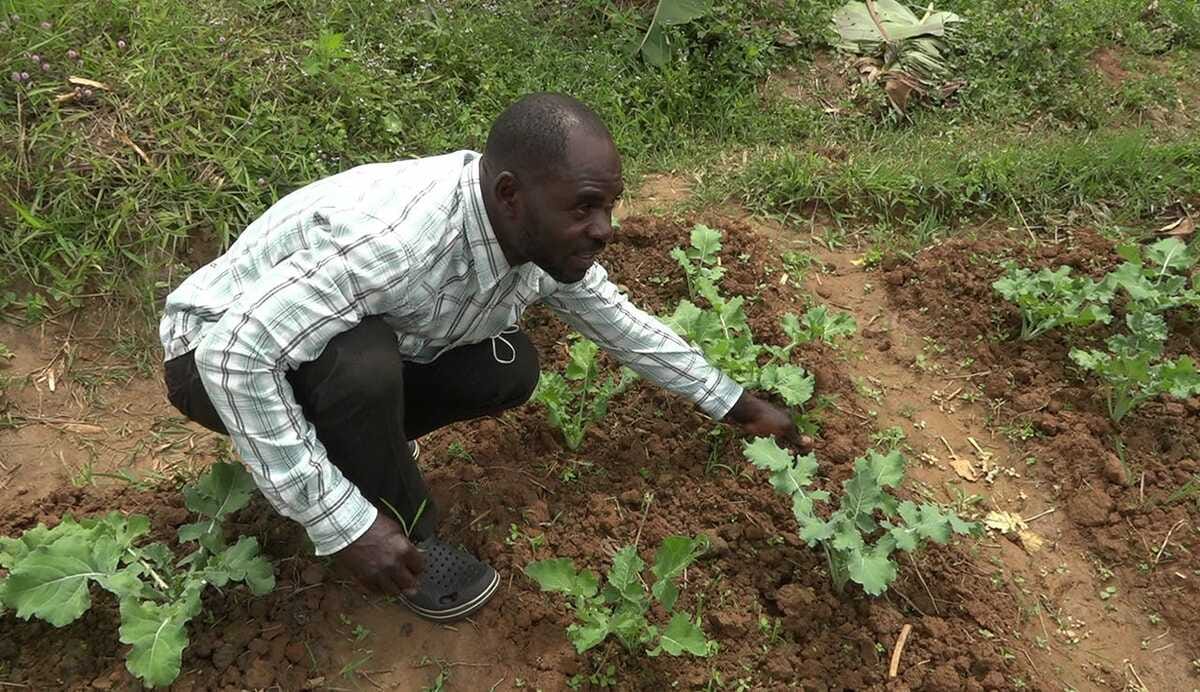
"I grow vegetables that not only supplement my family's dietary requirements, but I also make money from the vegetables, even though the market isn't good enough," he said as he showed us around his garden teeming with fresh vegetables.
Welcome to Jopilo Village, TA Kabunduli, from Singo Village: here we meet members of the Japilo Mtayajembe Farmers Field School.
Kwanja Nyirenda, the area's community-based facilitator, says the group is starting a number of farming activities, including pig farming, which he says is not only a popular but also a lucrative business.
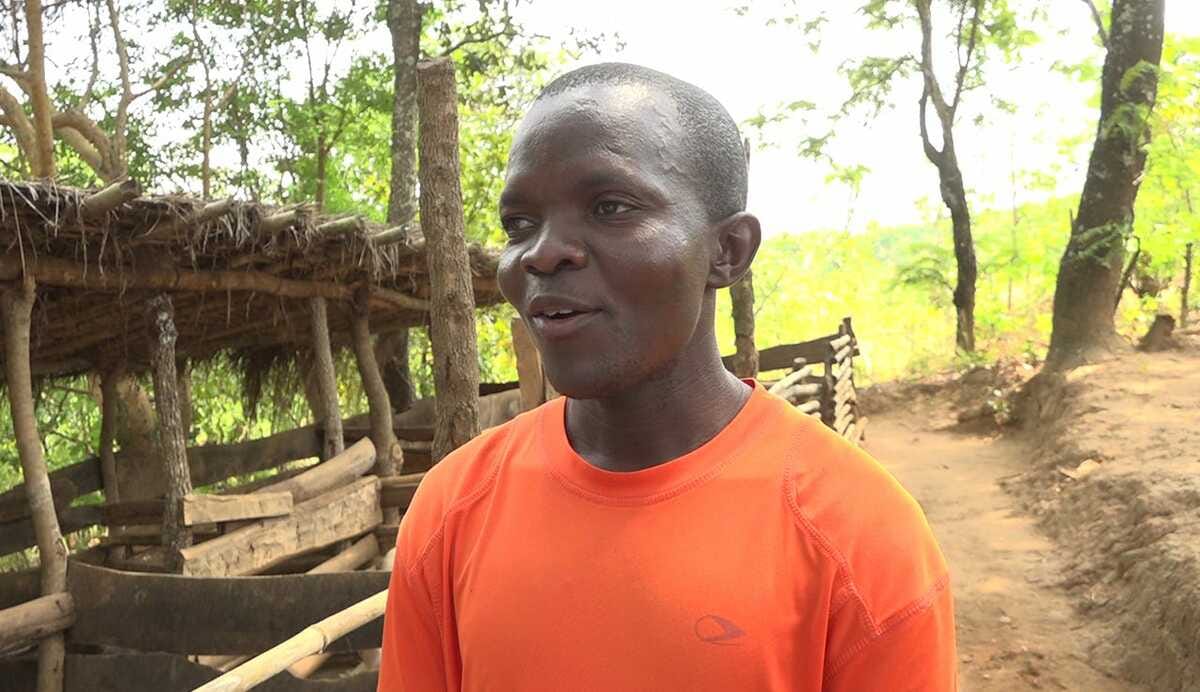
"In 2018, we began working with ActionAid in the Kulima Better Project, providing farm inputs to boost family incomes," Nyirenda said.
"We've also started raising pigs and have plans to open a shop selling pork if everything goes as planned."
"I am happy to have an EU-funded project, through ActionAid, which is improving the nutrition of my subjects through production of crops like maize, soya beans, and pig rearing," Jopilo Village Headman said of our visit to his area.
We travelled from Jopilo village to John Chiumia village in TA, where we met Yotamu Chiumia and Victoria Manda, two proud banana farmers in the area.

Chiumia, a student at Chigomegzo Farmers Field School, stated, "We have planted over 1,000 banana plants so far, and we are now taking farming seriously, thanks to the Kulima Better project in the area."
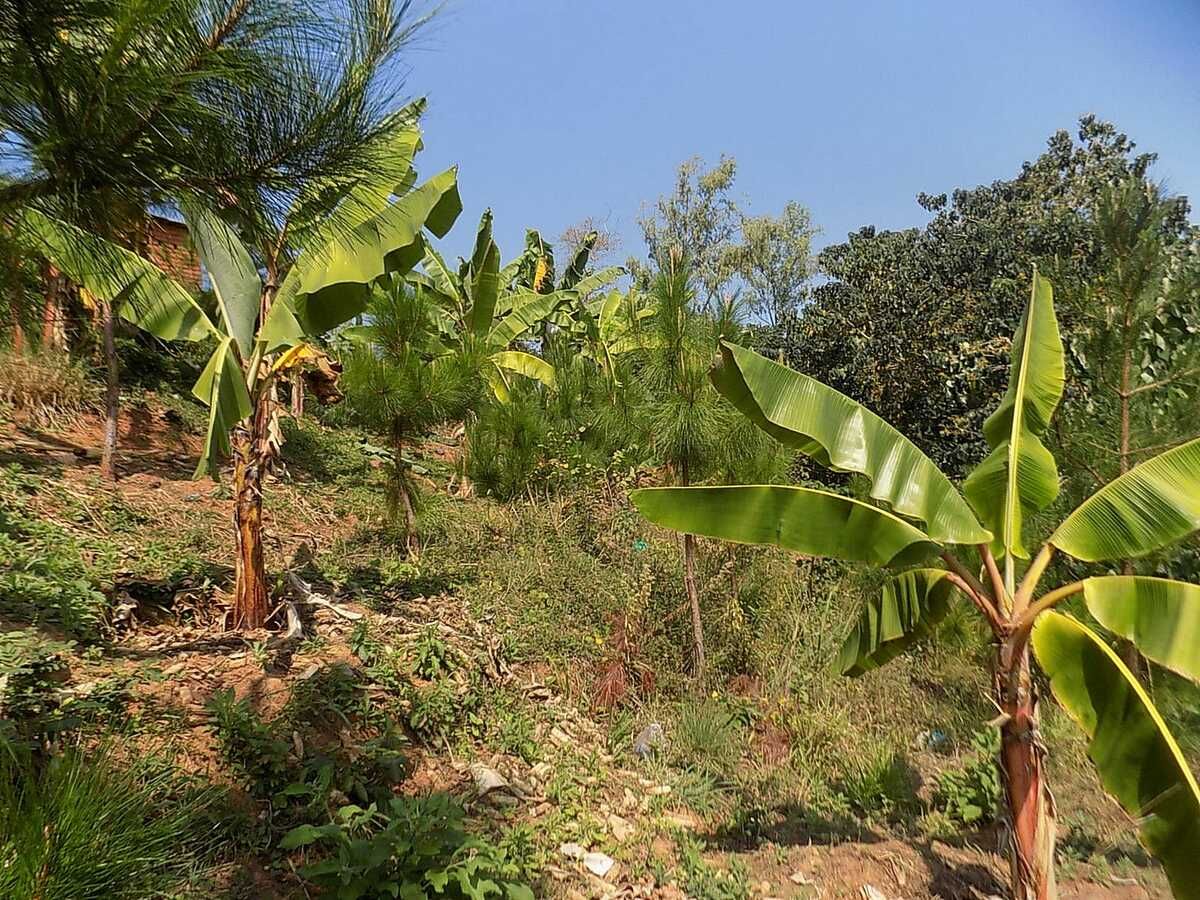
That's not all.
"We've also planted plants in our garden, and we expect to make about K500,000 from selling the green maize we grew on a one-acre plot of land," John said.
ActionAid Malawi is assisting a Village Savings and Loans group in TA Malengamzoma.
Merai Kasaka Banda is one of the village bank's beneficiaries, thanks to ActionAid Malawi's assistance.
"In general, I have benefited from the group's village bank because I was able to expand my initially small house. I've also been able to start a small family business for our day-to-day needs thanks to the group," she said.
She says she has so far managed to extend her house and even started a small business to improve her family welfare.
The last destination during our visit was Chitemwa Farmers Field School, where Henry Mkandawire, the local community-based facilitator, says is over the moon with the Kulima Better Project.

"We decided as a group to engage in horticulture and fish farming, reaping enormous benefits along the way," he said.
He claims to have started fish farming as an individual with 600 fingerlings.
"I'm proud to say that the fish have multiplied right now, with an estimate of around 2000 fish in the pond to date."
"The project that we are carrying out here has managed to fill the gap of shortage of agriculture extension workers, as farmers are able to teach each other after attending the farmers field schools," said Sebastian Luwayo, ActionAid's Nkhata Bay District Facilitator.
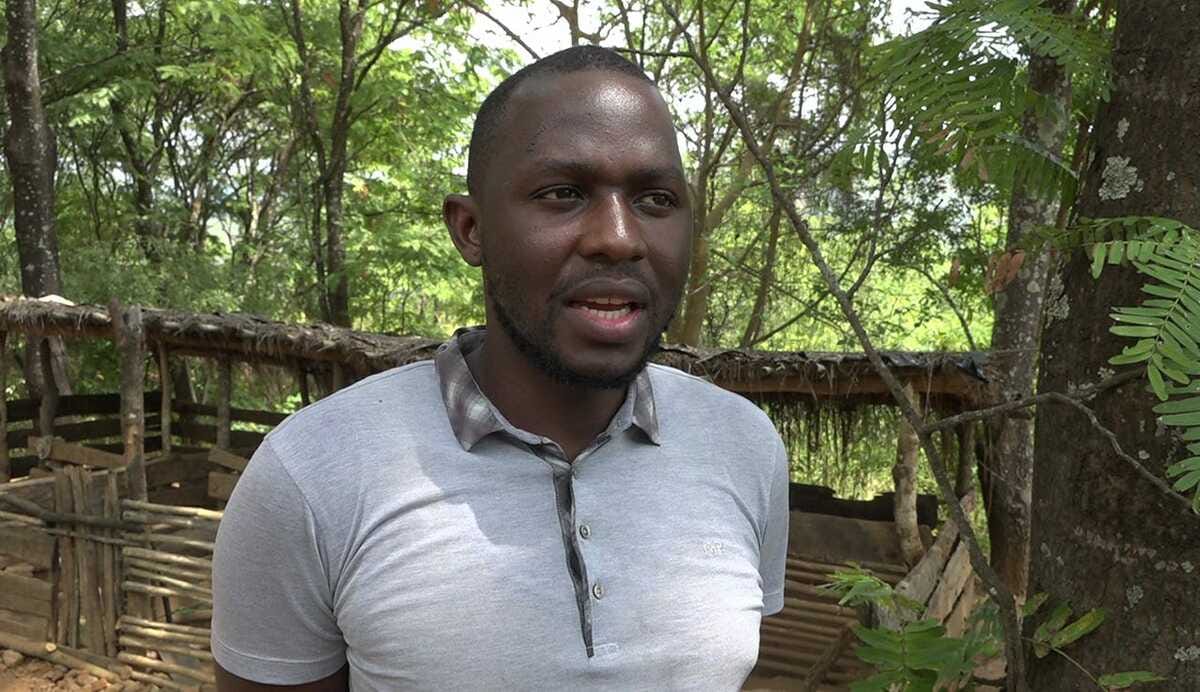
"The project also appears to have brought sanity to the district's agriculture sector, as farmers are now able to get farm inputs like seeds on time, unlike previously," he said.
Greshian Kamnyamata, ActionAid's Kulima Better Project Coordinator, says they have done their best to implement the project in Chiradzulu and Nkhata Bay according to the project document.
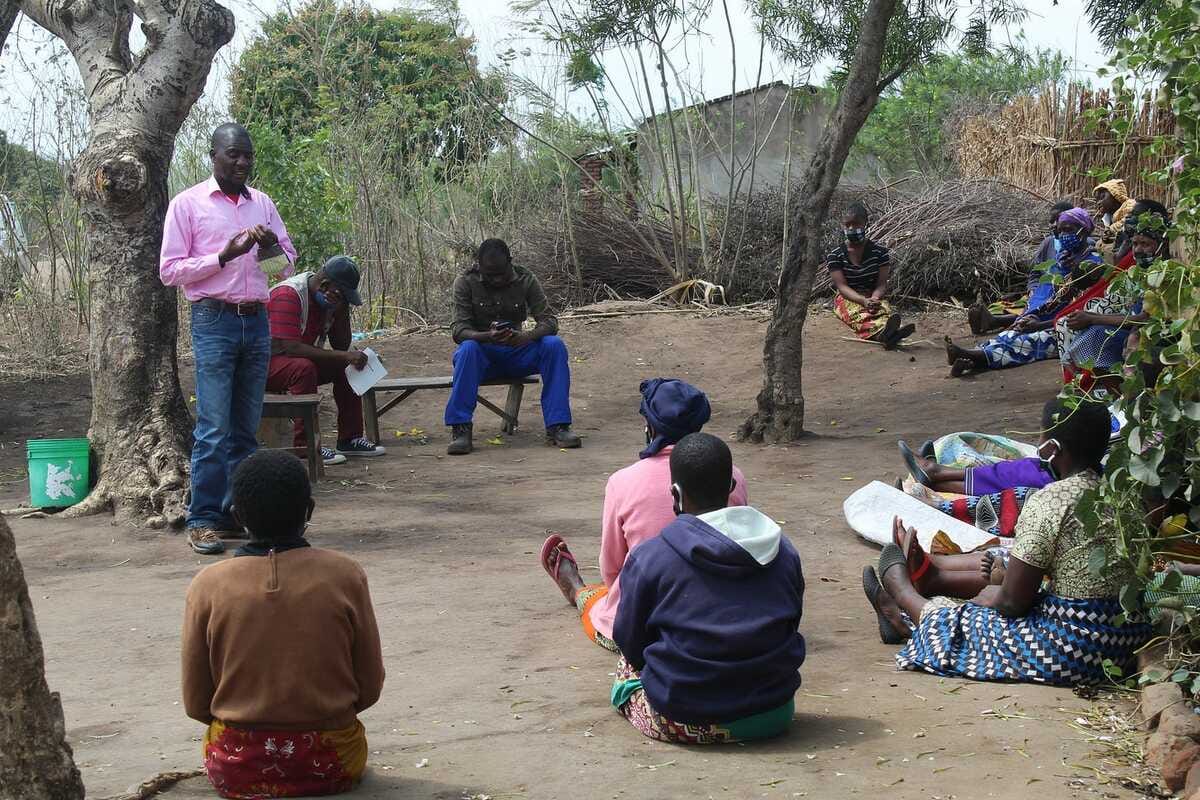
"By the end of five years, the project hopes to help farmers achieve three pillars: nutrition, income, and resilience to climate change," he said. “And, based on what we saw during the tour, we can confidently say that the local farmers have been properly educated in agricultural know-how."
Mr Hamilton Muthupi, a tomato farmer in Chiradzulu, is cited by Kamnyamata as an example of how these farmers have benefited greatly from these "self-help" schools, which provide much-needed training to the farmers.
"Mr Muthupi was able to purchase a motorcycle with the proceeds of his tomato sales after attending the Farmers Field School in Chiradzulu," he said.
Similar success stories, according to Kamnyamata, have been observed in numerous Farmers Field Schools in the two districts where ActionAid is implementing the Kulima Better Project.
While Kamnyamata believes the project has provided the beneficiaries with the tools they need to develop their families in the two districts, he admits that there have been some challenges along the way.
"One of the challenges that we faced in the early stages of the project was the delay in procuring farm input, but this has now been rectified," he said.
Kamnyamata claims that COVID-19 has not been kind to them, particularly the stringent restrictions imposed by the government.
He said: "Right now, due to government restrictions, we are unable to meet in large groups, which has hampered our work." On the other hand, as a project, we have come in to assist our farmers by providing soap. So far, we have distributed 26,880 soap tablets, with 14 tablets distributed to each farmer."
As Kamnyamata points out, the EU-funded Kulima Better Project is clearly sowing seeds of hope in the catchment areas where it is being implemented; it is only hoped that the project will be replicated elsewhere in Malawi so that many farmers can benefit.